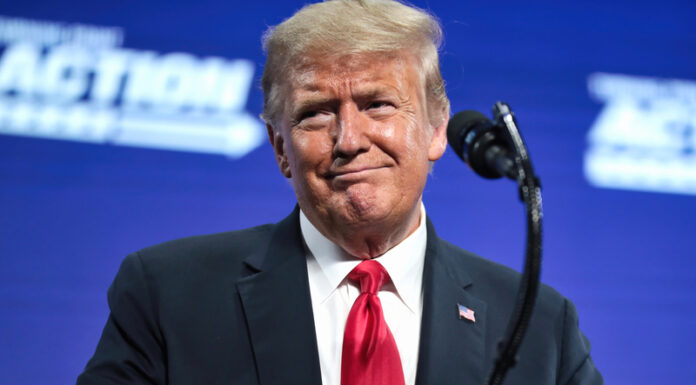President Donald Trump encountered a challenging reception at the Kennedy Center in Washington, D.C., during the opening night of “Les Misérables” on June 11, 2025. Audience members expressed dissatisfaction with his presence, and cast members organized boycotts due to his controversial leadership change at the esteemed arts institution.
The audience reaction was mixed, featuring profanities and allegations directed at Trump, while some in attendance chanted “USA” in support. The environment became tense as some attendees vocally expressed displeasure when Trump took his seat, underscoring the President’s contentious relationship with the arts sector.
Trump’s response to the criticism highlighted his sensitivity to public disapproval. When asked about the cast’s potential boycott, Trump dismissed it, stating, “I couldn’t care less” and claiming, “All I do is run the country well.” This reaction exemplified his characteristic approach to addressing artistic and cultural dissent during his presidency.
The controversy originated from Trump’s unprecedented restructuring of the Kennedy Center, where he dismissed longtime chairman David Rubenstein and the entire board, replacing them with his supporters, who then appointed him as chairman. This aggressive overhaul has been widely criticized by the arts community, viewing it as undue political intervention in cultural institutions.
Ten of the 12 principal cast members of “Les Misérables” contemplated not performing as a protest against Trump’s attendance. The widespread artistic resistance highlighted the level of opposition within the performing arts community to Trump’s management of cultural institutions.
In a separate protest, a group of drag performers attended the show, using tickets donated by patrons who opposed Trump’s presence. The drag queens staged their protest in the auditorium, strategically seating themselves in front of the presidential box, confronting Trump with the type of performance he has aimed to exclude from Kennedy Center events.
Trump’s discomfort with criticism has driven him to reshape the Kennedy Center according to his political preferences. He has vowed to eliminate what he calls “woke” programming, specifically targeting drag performances and LGBTQ+ events, which he describes as “anti-American propaganda.” This approach reflects his efforts to control cultural narratives and prevent future public embarrassment.
The President’s sensitivity to rejection from the arts community has extended to his broader efforts to cut federal cultural funding. His administration has proposed eliminating the National Endowment for the Arts, the National Endowment for the Humanities, and the Corporation for Public Broadcasting completely. The NEA has already informed numerous organizations that their grants have been declined or withdrawn, affecting more than 200 organizations, resulting in the withdrawal of $5.9 million in funding.
The restructuring of the Kennedy Center has led to a decline in opposition. Subscription sales have decreased since Trump’s takeover, and several prominent performers and artists have canceled scheduled appearances to avoid the controversy of performing at a venue controlled by Trump. Canadian author Louise Penny canceled a planned book launch event, illustrating how Trump’s approach has deterred critics.
The event took on a “MAGA-does-Broadway” atmosphere, with Trump-appointed officials filling the audience alongside Vice President J.D. Vance and Attorney General Pam Bondi. The presence of administration loyalists appeared to be a strategy to shield Trump from public disapproval, which he has struggled to manage throughout his political career.
Critics pointed out the irony of Trump attending “Les Misérables,” a musical centered on rebellion against oppressive government, while simultaneously using his position to reshape cultural institutions to prevent future criticism. The show’s themes of social justice and resistance to oppression highlighted the disconnect between Trump’s actions and the artistic works he claims to appreciate.
Trump has appointed loyalist Richard Grenell as the new leader of the Kennedy Center, ensuring that future programming aligns with his preferences and reduces the possibility of public embarrassment. This approach to managing cultural institutions reflects his ongoing difficulty in handling criticism and public rejection from the arts community, which has consistently opposed his policies and leadership style.








